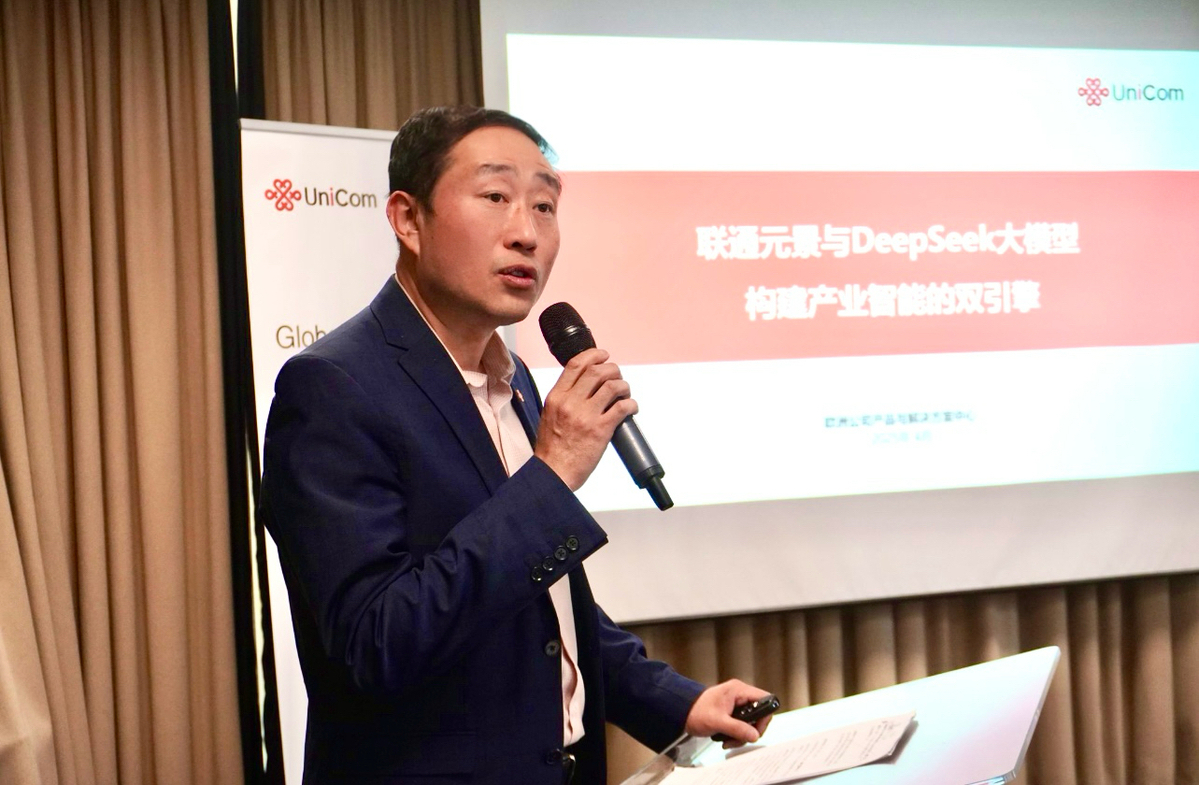China Unicom keen to lead global AI journey


From LLMs to SLMs
More than 37 industry-tailored LLMs have been developed, covering sectors such as clothing, automotive, equipment manufacturing, warehousing, logistics, power, steel, mining, light textiles, ports, and chemicals, according to Xue.
Real-life applications of Yuanjing LLMs are already delivering results in China. At a garment factory in Hangzhou, eastern Zhejiang province, the model has dramatically improved design efficiency. In the past, a skilled designer could create three to four designs per day, taking up to two days to finalize one. Now, the AI generates designs within seconds, including visualizations of the fit, boosting designers' productivity, according to China Unicom.
In port operations, Yuanjing has been deployed with a company in Nanjing, eastern Jiangsu province, where it is embedded across the entire safety-management workflow. The system can detect and address non-compliant operations, trigger instant alarms, and identify congestion, enhancing both safety and efficiency across more than 30 operational scenarios.
These practices represent a key trend in AI adoption — from LLMs to SLMs, or small language models, said Guo Juntong, senior solution manager and product manager at China Unicom Europe.
"What we need is for businesses to feel that the model truly understands them," he said. "Using general LLMs in some cases is like using a massive hammer to crack a delicate nut; bigger isn't always better. What really matters is having the right fit, and that is the key issue: adaptability."
"General LLMs are just not designed to be highly targeted. Continuous fine-tuning is therefore required to meet the needs of different vertical markets and ensure that the model's responses are closely aligned with industry-specific requirements," he added.




































